GE2025: The secrets to PAP's electoral success through the eyes of party insiders
Despite early doubts and strong opposition momentum, PAP activists revealed how quiet discipline, strategic focus on battlegrounds and a more respectful tone helped the ruling party to retain power and strengthen its mandate.
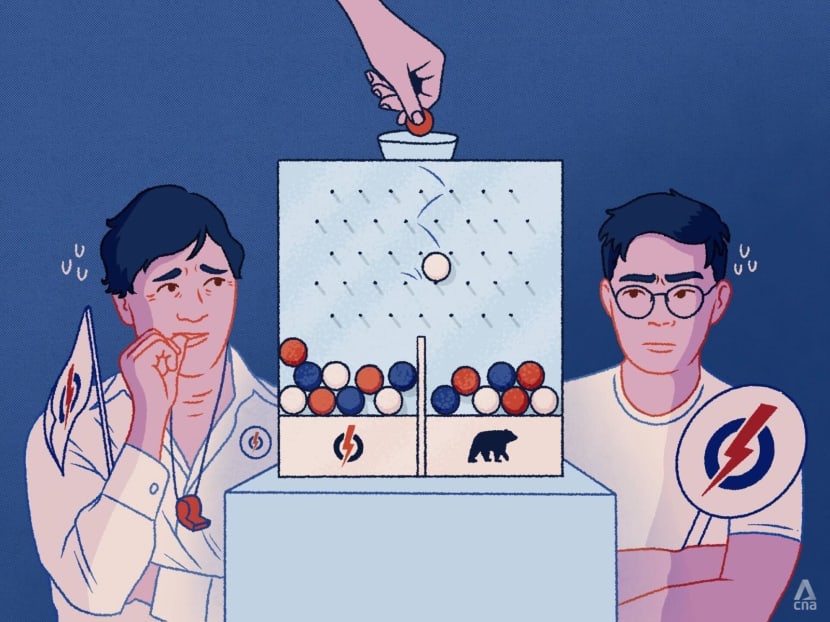
Going into the recent General Election, People's Action Party's activists and members on the ground, while hopeful, were bracing themselves for all eventualities. (Illustration: CNA/Nurjannah Suhaimi)

This audio is generated by an AI tool.
The People’s Action Party (PAP) may have had an uninterrupted streak of governing post-independence Singapore for almost 60 years, but this record did not stop some party activists and members from going into the recent General Election with a good amount of pessimism.
They chalked this up to the growing desire among voters for greater political contestation and diversity in parliament, based on online chatter and “coffee-shop talk” among friends.
As they entered the campaign season proper, one PAP member who was involved in the hustings in an eastern constituency said the strong support for the Workers' Party (WP) was also unnerving.
“There was a long queue to enter the Workers’ Party rally and it was really crowded, with the pitch almost full and the seated areas full,” the member said, declining to be named.
“In contrast, the PAP rally (in Tampines) was one-third full on the pitch and it did sound lacklustre. And there was quiet anxiety online and at the rally.”
Mr Eric Chin, the treasurer for the party’s branch in Boon Lay, said there was also “some nervousness” given that it was the first election helmed by Prime Minister Lawrence Wong, who is also PAP's secretary-general.
Historically, the elections immediately after a handover of leadership typically will see a dip in vote share for the ruling party.
“The stakes were high,” Mr Chin said. “The messaging about a dangerous world wasn’t just political rhetoric – we saw first-hand how global instability affects daily lives.”
In short, while they were hopeful, activists and party members on the ground were bracing themselves for all eventualities.
“The party was prepared to lose seats,” another party member of more than 10 years said. He has been involved in two election campaigns and, like some of the others who were interviewed by CNA TODAY, spoke on condition of anonymity.
Despite the initial apprehension about the election outcome, the party insiders said that the support they received while campaigning on the ground was warm.
Mr Chin said: “We also sensed that residents were still open and willing to listen. Many just wanted to be heard.”
Ultimately, on Polling Day, the seven party members interviewed by CNA TODAY said that there was a general sense of surprise. Not only was the party returned to power, but it had successfully improved its vote share and staved off any expansion by the opposition.
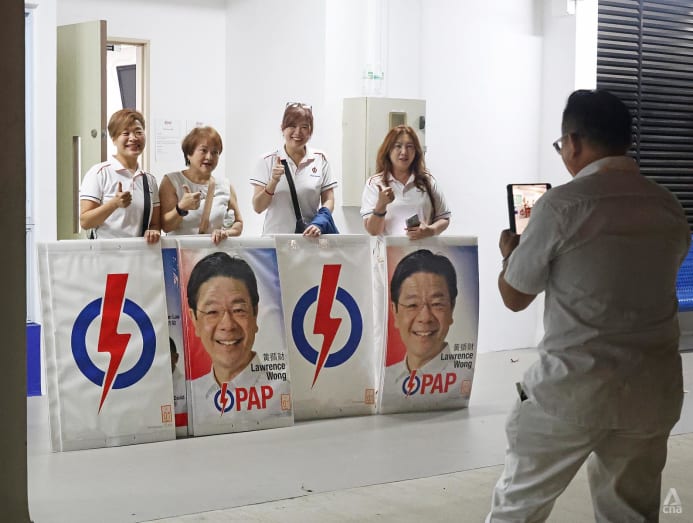
PAP won 65.57 per cent of valid votes, up from 61.24 per cent in 2020.
As for WP, it managed to retain the three constituencies it won in the last election, but its vote share in the places it contested dipped slightly by 0.45 percentage points to 50.04 per cent.
One unnamed PAP member helping with the campaigns in the east said: “For some, like Ang Mo Kio GRC, the results were not surprising. For others, especially the ones reported to be hotly contested areas, we were surprised by the victories, even if they were small.”
Ang Mo Kio Group Representation Constituency (GRC), helmed by Senior Minister Lee Hsien Loong, was handily won by PAP with healthy margins in several past elections.
In the hours after all the results were announced last weekend, political pundits pointed to voter discernment and the party’s successful messaging as key contributors to PAP’s successful campaign.
However, speaking to PAP activists who helped carry the party message to the masses on the ground, the picture is more nuanced. They highlighted three prominent strategies that they believe helped to deliver the strong mandate that the party ultimately garnered.
These were:
- Focusing resources and attention on the hot spots in the eastern and north-eastern parts of Singapore
- Refraining from personal attacks to focus on big-picture issues
- Doubling down on the incumbency advantage by highlighting municipal and constituency issues
SAVING FIREPOWER FOR THE EASTERN FRONT
With WP, the only opposition party with elected seats in the previous parliament, known to be focusing on eastern Singapore for its expansion plans, PAP leaders directed more attention and resources towards the east, party activists said.
“From the ground level, it did feel like resources and attention were being calibrated across constituencies. The East saw tighter contests, so naturally, more energy flowed there,” Mr Chin said.
Mr Inderjit Singh, a former PAP MP, told CNA TODAY: “I think the PAP was more worried about the WP winning another GRC and it focused all its firepower on the east side. It knows that once lost, it would be very difficult to win back a constituency.”
On the ground, this focus on the east manifested in a few ways.
One, the ruling party kept its cards closer to its chest when it came to the east – line-ups for most other GRCs were unveiled way ahead of those for eastern constituencies – and even then, some last-minute shuffles happened.
For instance, Deputy Prime Minister Gan Kim Yong was shifted to Punggol GRC on the morning of Nomination Day itself, a move that Mr Wong explained was necessary due to the retirement of Senior Minister Teo Chee Hean in the east, but which was widely seen as an electoral manoeuvre to secure the hotspot for PAP.
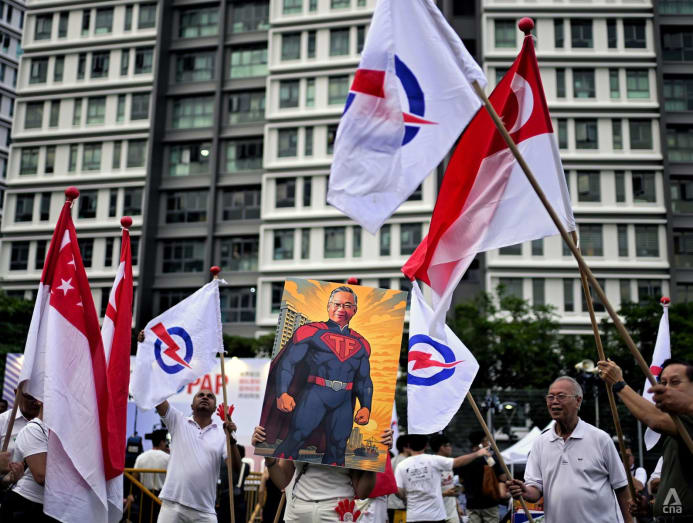
These “last-minute movements of chess pieces” were frustrating for the PAP activists because they had to work even harder in introducing the newly moved candidates to constituents in a short period of time, the party member of more than 10 years said, though he conceded that the strategy worked in the end.
“So long as in the grand scheme of things it supported the overall percentage the party scored, I don’t really have any complaints,” he added.
Another way in which the focus was put on the east was in terms of airtime.
Although PAP held 20 rallies throughout the campaign period, not all constituency anchors took the stage.
Mrs Josephine Teo, who anchored Jalan Besar GRC, and Dr Vivian Balakrishnan, who anchored Holland-Bukit Timah GRC, were among those who notably did not deliver any rally speeches. Their teams had each won with more than 65 per cent of votes in 2020 and they improved on that with more than 75 per cent of vote share this year.
Teams fielded in the western and central regions were also generally either less willing or less proactive in engaging the media throughout the election campaign compared with the teams contesting in the eastern hot spots, CNA observed.
The party member of more than 10 years said the general strategy was to “keep quiet”.
“Tampines and Punggol GRCs – the high-key ones – they have to talk, but the ones that are not relevant, and we think are in an 'okay' position, the stance was, ‘Don't talk. You’ll add fuel to the fire’,” he added.
This minimised the risk of candidates accidentally making comments to the media that may take away attention from the debates in the hot spots.
In the last stretch of the campaigning period, Mr Lee and Mr Wong paid a visit to Tampines GRC to throw their weight behind the five-member PAP team contesting there, helmed by Social and Family Development Minister Masagos Zulkifli.
When asked about the thinking behind these visits, the activists said that it was to emphasise to the residents how the party took the campaigning in those constituencies seriously, adding that the party leaders went where they were “most needed”.
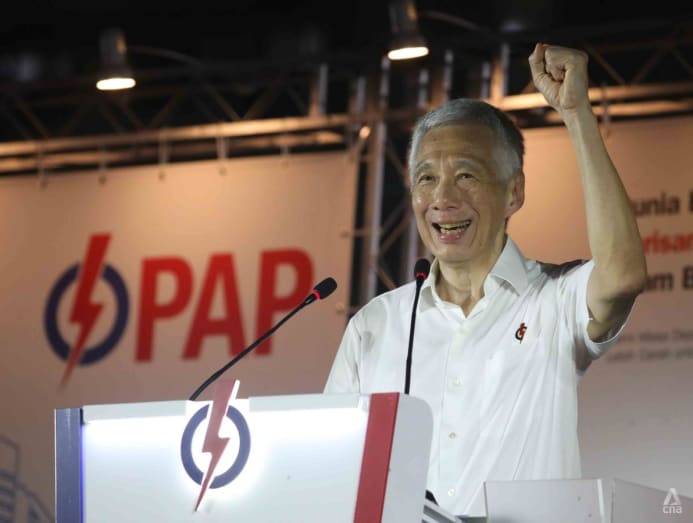
Notably, Mr Wong also gave his last two rally speeches this year in the hot spots of Punggol GRC and Sengkang GRC.
TAKING THE HIGH ROAD
Those who have had to vote in past elections would likely recall moments where the PAP launched aggressive attacks against opponents during the campaign season, sometimes singling out particular individuals.
Independent political observer Felix Tan recalled a letter written by PAP’s Tan Wu Meng in the party’s online newsletter on Jun 19, 2020, taking aim at WP chief Pritam Singh for his support for vocal playwright Alfian Sa’at.
Mr Pritam Singh said then that Dr Tan Wu Meng’s letter, published mere days before the writ of election was issued that year on Jun 23, cast doubt on his and WP’s loyalties to the country and was “politically motivated”.
Dr Felix Tan also pointed to past elections where the PAP targeted Dr Chee Soon Juan, chief of the Singapore Democratic Party (SDP), for attacks.
During the 2020 election, after a televised debate where Dr Chee had brought up the government's population policies and claimed that the incumbent party "toys with the idea of bringing our population to 10 million", PAP swiftly issued a statement saying that this was a falsehood.
PAP said the population issue, which formed the basis of SDP's campaign, "renders the campaign pointless and calls into question the integrity of the whole party".
It then went on to refer to an incident in 1996, where Dr Chee had “refused to apologise for his use of wrong data on healthcare subsidies at a parliamentary select committee”, before comparing him to a leopard that never changes its spots.
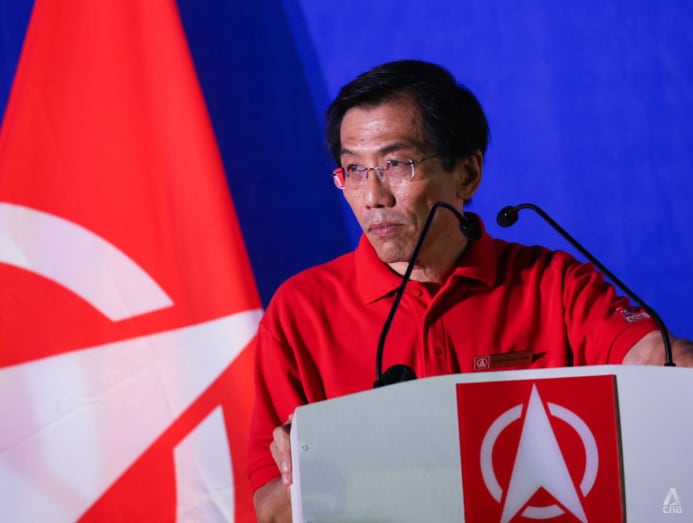
During the 2015 General Election, political office holders in PAP resurfaced past incidents involving Dr Chee to question his character publicly.
PAP members and activists who spoke to CNA TODAY largely agreed that the party moved away from such tactics this election.
“There was a more grounded tone, a bit more humility and a focus on listening.
"Internally, we were reminded constantly that we’re here to serve, not just persuade,” Mr Chin from PAP's Boon Lay branch said.
Agreeing, Mr Inderjit Singh said: “Compared to the past elections, this time, PAP candidates did not directly attack any candidates but (on) social media ... PAP supporters were actively pointing out flaws and doing personal attacks on many of the opposition candidates.”
The efforts seemed to be coordinated, but Mr Singh was unaware whether it was done under the direction of the party or just by enthusiastic supporters on their own.
Party members and political observers attributed this strategy change to voters’ growing desire to see a mature political discussion, as well as the party’s new leadership team being willing to take a fresh approach.
Mr Anil Kumar Vijai Narain, a party member who was involved in campaigning for the first time this year, said: “The 4G (fourth-generation) leaders, they know to move with the times, take a different approach.
“No more banging table and all, that era is over.”
One notable instance of this shift was how, midway through the campaigning period, Mr Wong held a press conference in his capacity as prime minister to caution against foreign interference, activists said.
A Singaporean preacher based in Malaysia had taken to Facebook during the election season to throw his support behind WP while encouraging Singaporeans to vote along racial lines.
Nonetheless, Mr Wong did not make any references to WP during his press conference.
The long-time PAP member who has volunteered for two general election campaigns said that had Mr Wong held the press conference in his capacity as PAP secretary-general or named WP outrightly, it may not have been taken well by voters.
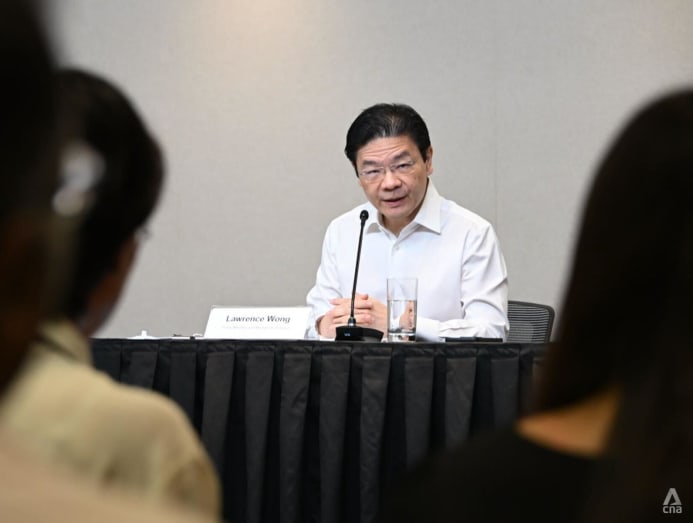
That same day, however, Mr Lee questioned the opposition for not acting swiftly with regard to the issue, saying they spoke out only after the ruling party had done so.
“You didn't notice, you didn't know or buat bodoh?” the senior minister asked, using the Malay term for deliberately feigning ignorance.
Mr Zainal Sapari, a former PAP MP, said: “While the overall approach was to focus on constructive politics, there’s also a role for calling things out when needed.”
It was part of a wider effort to ensure voters “get a full picture, even as the main thrust of the campaign stays positive”, he added.
Mr Inderjit Singh said: “The retiring MPs had credibility and have developed goodwill with voters, and their voices helped the new candidates get ground support.”
More generally, Dr Felix Tan said that where any "targeting" happened this year, they mainly centred on the parties' electoral campaign moves involving certain candidates rather than taking issue with their character per se.
He cited the examples of how PAP zeroed in on Dr Chee moving to Sembawang West Single Member Constituency (SMC) and WP taking aim at Mr Gan's eleventh-hour deployment to Punggol GRC.
This is not to say that allegations of dirty politics did not surface at all during this election.
Shortly before the official campaigning season began, screenshots surfaced online purportedly showing PAP activists planning among themselves to disrupt walkabouts held by an opposition party.
The party did not respond to CNA’s queries about these online images when asked about them during the hustings.
The PAP insiders who spoke to CNA TODAY said they were not aware of the alleged plan, but added that generally, the decision-making for ground campaigning activities was decentralised to the respective branches.
They said that such alleged behaviours are not in line with the party’s values and, if they were indeed true, may have come from some overzealous members.
Separately, a snippet from the draft of a speech by PAP candidate Edward Chia was circulated online, which included a line indicating that after Mr Chia had delivered a particular paragraph, a PAP supporter in the crowd would shout negative remarks about SDP.
This did not happen eventually. Mr Chia delivered his speech and that paragraph as prepared, but there was no audible response from the crowd.
Mr Chia, who contested Holland-Bukit Timah GRC, was speaking at the rally for Bukit Panjang SMC, which was being contested by the SDP.
Asked by alternative media site The Online Citizen about the draft, Mr Chia responded that he had overruled it because it was “not my style”.
MUNICIPAL MATTERS MATTER
While issues such as the aborted Income-Allianz deal, last-minute candidate deployments and the Goods and Services Tax (GST) hikes dominated debates in hotly contested areas, other constituencies doubled down on their track record on the ground.
Ms June Lim, a PAP member involved in the campaigning at Pioneer SMC, described this as one of the factors that helped the party win with such decisive margins, because “voters know what we are talking about and could see the outcomes for themselves”.
“Ultimately, they are more inclined to vote for a candidate who will take action to address their daily needs or take their feedback. It could be as simple as a traffic shortcut or a new covered linkway,” she said
In Pioneer SMC, labour MP Patrick Tay was defending his seat against Ms Stephanie Tan from the Progress Singapore Party (PSP), a candidate who gained prominence for representing the opposition party during Mediacorp's General Election round-table discussion.
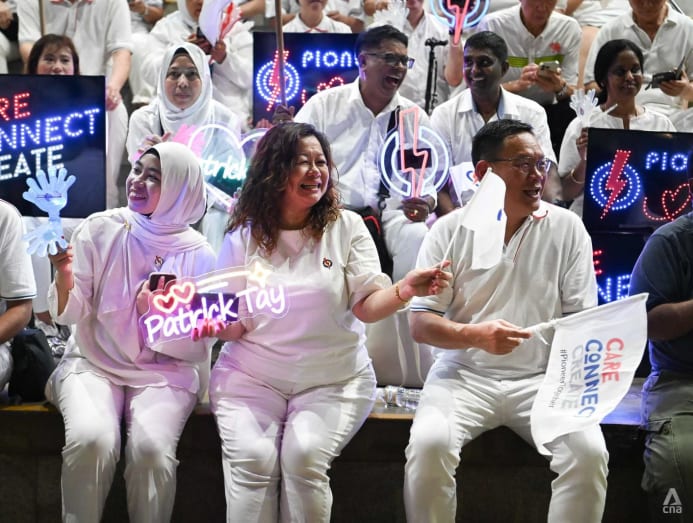
Mr Tay widened his winning margin this year to about 65.45 per cent of the vote, up slightly from the 62 per cent he had against a PSP and an independent candidate in 2020.
Ms Lim from Mr Tay's campaign team said: “I had confidence that the national media and overall party campaign would cover the macro narrative. So by going hyperlocal, we could better speak about results and initiatives, which are tangible to the voters in Pioneer SMC.”
Mr Anil, who had helped out with the campaign in Bishan-Toa Payoh GRC, said that based on his engagement efforts, what won the voters over was their familiarity with how the MPs had helped the estates over the last five years and the tangible plans they have to offer in the next term.
Mr Chee Hong Tat, anchor minister for the constituency, promised a new hawker centre and other rejuvenation plans for the mature estates in the constituency. PAP won the GRC with 75.12 per cent of the vote, up from 67.23 per cent in 2020.
In Bukit Panjang SMC, which was touted as a close fight, the rematch between PAP’s Liang Eng Hwa and SDP’s Paul Tambyah saw Mr Liang make significant gains this year – from 53.73 per cent in 2020 to 61.43 per cent.
Here, Mr Liang had also doubled down on the role he played as an MP there and took effort in his rally to highlight examples of how he had lobbied for his residents' interests, as he countered Dr Tambyah’s argument that all development projects can still carry on regardless of which party was in charge of the constituency.
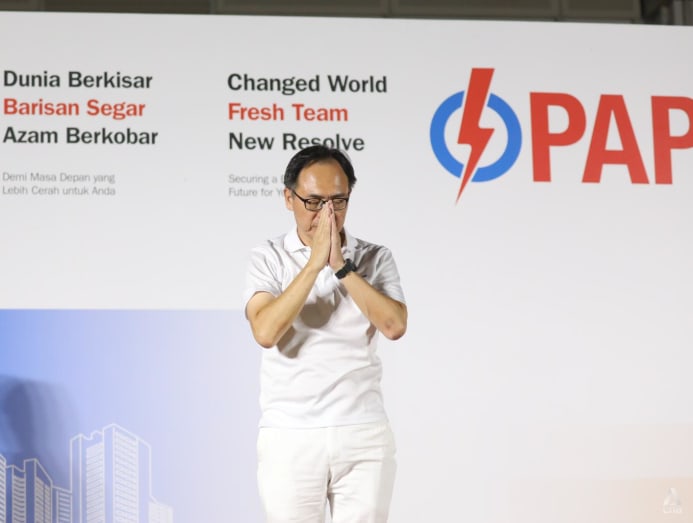
RESPECTING VOTERS PAID "HANDSOME DIVIDENDS"
In an online poll done by market research firm Blackbox Research, PAP’s overall advantage came from campaign discipline and long-term planning.
The poll was conducted with 500 Singaporeans on Apr 29 and 30, at the tail end of the campaigning period.
"Operationally, they outperformed the opposition on nearly every key campaign metric, particularly in local ground efforts and policy articulation," the firm said.
For instance, on the performance metrics of "strength of their policies and ideas" as well as "local campaigning in your area", the ruling party led WP by 16 points, the survey found.
Listen:
Giving his overall assessment of the strategies deployed by PAP this year, Associate Professor Eugene Tan, a political analyst, said that the party “ran a disciplined campaign”.
PAP portrayed itself as the ruling party rather than a “party under siege”, even in the face of the opposition's collective attacks on issues such as the GST hikes, the former nominated MP added.
“By not being unduly defensive, the PAP was able to keep itself and voters focused on the key issues of the day. This obviously worked to its advantage, as the PAP had long-standing performance legitimacy and street credibility,” Assoc Prof Tan from the Singapore Management University said.
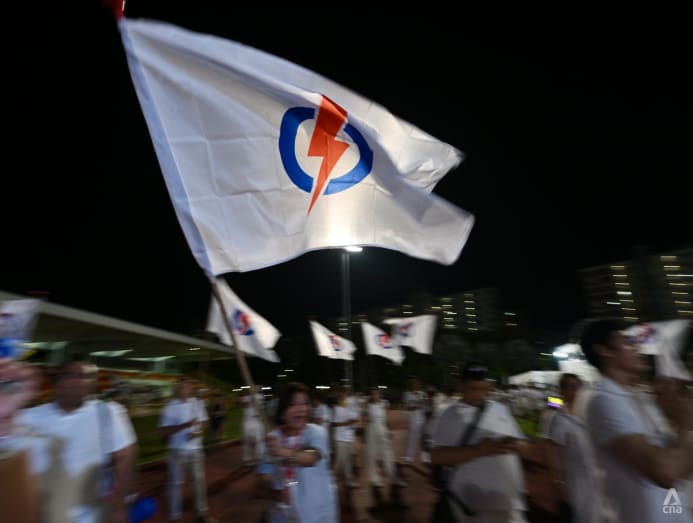
Asked about the possible risks of the strategies deployed such as holding back their punches when dealing with the opposition, Dr Felix Tan said that the choices made were ultimately “for the better” and worked in PAP's favour.
“Because going for the jugular, as you’ve seen in previous elections, didn’t bode well for PAP at all.”
Both he and Assoc Prof Tan also noted that the court trial against Mr Pritam Singh was not brought up during this campaign, which they felt was a deliberate choice on the part of PAP.
More broadly, any strategy would have its inherent risks and potential drawbacks, Assoc Prof Tan said.
However, taken together, PAP's overall strategy was to make the call for stability, continuity and security – qualities that it has a track record to show for, without having to “pooh-pooh” on the message of having a more balanced political system advocated by WP and opposition parties, he added.
“It is fundamentally about earnestly engaging and respecting the voter's autonomy to decide without being browbeaten by the dominant ruling party,” he continued.
“This healthy respect for the voter, seeking to connect with them at the level of both the intellect and affect paid handsome dividends.”
Editor’s note: An earlier version of this article stated that Mr Patrick Tay from the People’s Action Party won about 64.4 per cent of votes in Pioneer SMC in the 2025 General Election. This is inaccurate. He won with 65.45 per cent. We are sorry for the error.













